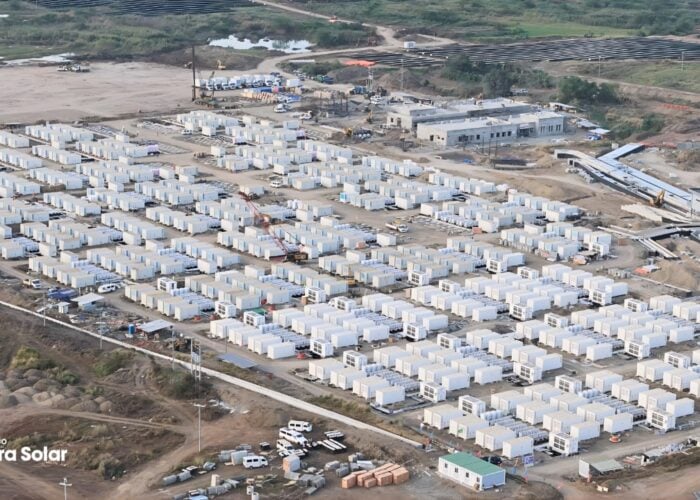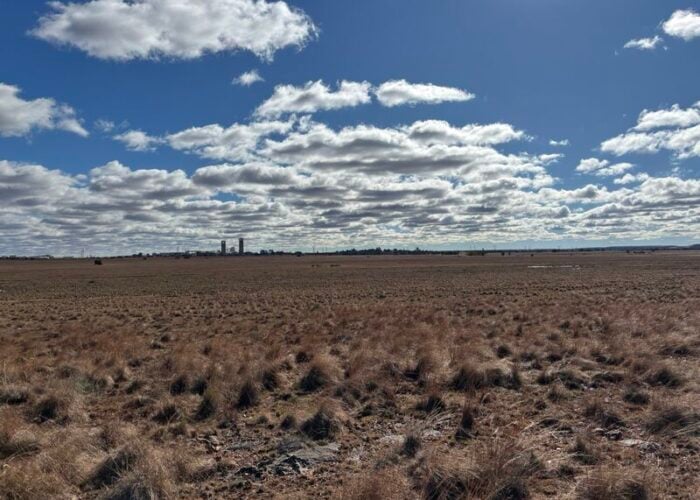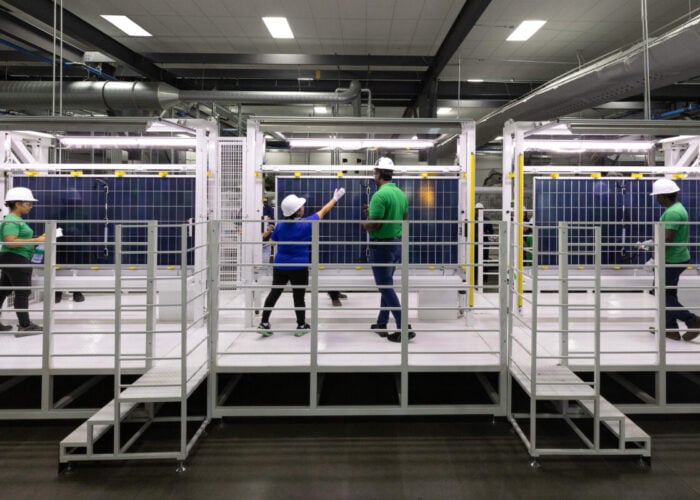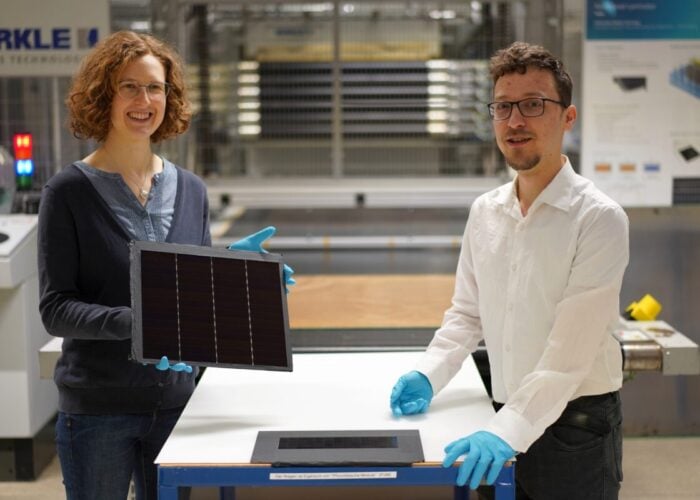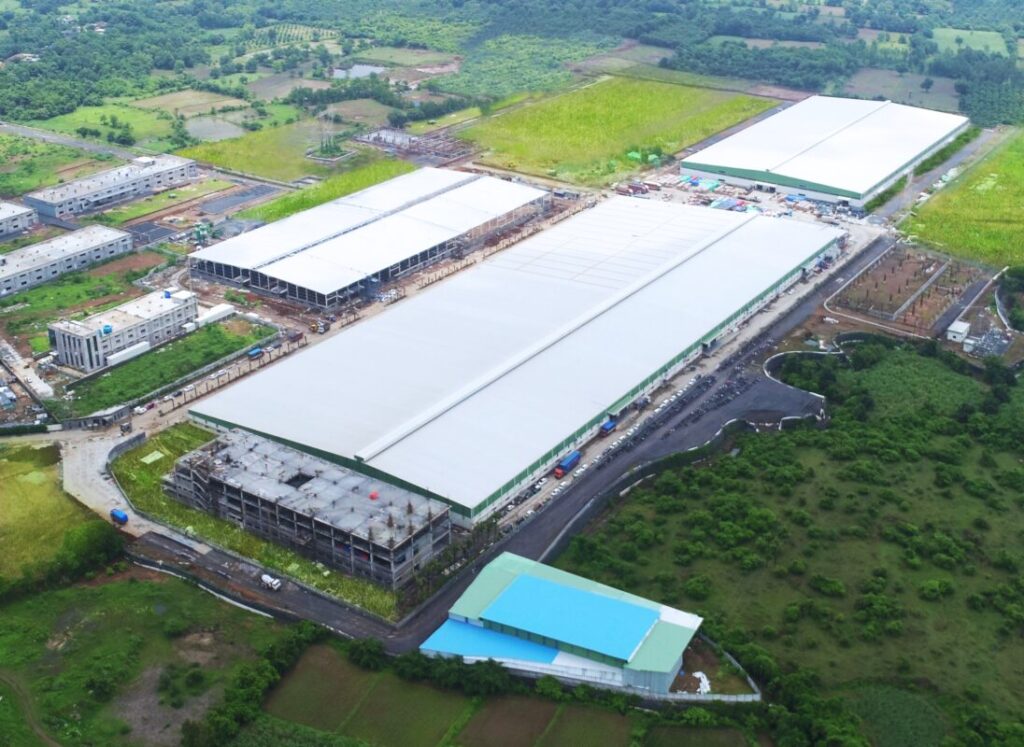
Indian solar manufacturer Waaree has said it does not expect to pay additional duties on its solar cell imports to the US, following the start of an antidumping and countervailing duty (AD/CVD) investigation by the US Customs and Border Patrol (CBP).
Waaree is “fully cooperating” with the CBP’s investigation and “actively working with CBP to ensure full transparency and appropriate corrective action”, the company said in a statement.
Try Premium for just $1
- Full premium access for the first month at only $1
- Converts to an annual rate after 30 days unless cancelled
- Cancel anytime during the trial period
Premium Benefits
- Expert industry analysis and interviews
- Digital access to PV Tech Power journal
- Exclusive event discounts
Or get the full Premium subscription right away
Or continue reading this article for free
CBP has issued a Notice of Initiation of Investigation and Interim Measures to Waaree.
The manufacturer operates a 1.6GW solar module production facility in Texas and is in the process of expanding its capacity to 3.2GW. It also recently bought the US assets of struggling Swiss solar manufacturer Meyer Burger, which Waaree claims “further underscores our long-term commitment to the American solar sector and US production.
“At this time, we do not expect the investigation will result in any additional duty,” Waaree’s statement continued. “We remain confident in our compliance posture and appreciate the opportunity to clarify the facts.”
What is the solar AD/CVD case about?
The CBP investigation was triggered by a petition from the American Alliance for Solar Manufacturing Trade Committee, a group comprising US-based solar manufacturers, including cadmium telluride thin-film producer First Solar and Korean-backed firms Hanwha Qcells and Mission Solar, which has brought a series of complaints to CBP over the last 18 months.
The group alleges that Waaree is evading AD/CVD tariffs on solar cell imports (“whether or not assembled into modules”) by importing Chinese-made cells to the US and mislabelling them as Indian. Solar cells and modules from China and certain Southeast Asian countries are subject to AD/CVD rates when entering the US, while India currently is not.
The Alliance’s petition claims that Waaree imported 5.4 million kilograms of solar modules to the US in 2024, which it alleges are “falsely claiming to have been made in India.”
This claim is based on the allegation that Waaree’s first Indian solar cell capacity came online in “late 2024”, but it was shipping modules and cells to the US prior to that. The company reportedly began trial production at its 5.4GW solar cell production facility in Gujarat in early January this year.
The Alliance also says that between 2022 and 2024, imports of Chinese solar cells to India increased by “600%”, as the country built out its solar module manufacturing base, and that Waaree had no cell manufacturing capacity during this period.
It also claimed that “Confidential reports” indicated that the company’s cells were imported from China, though it gave no more information on this.
Tim Brightbill, partner at Wiley Rein LLP and lead attorney for the American Alliance for Solar Manufacturing Trade Committee, said: “Indian solar products have been among the lowest prices in the market, and now we know why that’s possible: by using Chinese cells and not paying the duties that apply to them.
“We are very confident that the evidence provided in this EAPA allegation, and substantiated by US Customs’ preliminary decision, will be confirmed by the remainder of the Customs investigation.”
The Alliance began seeking to impose AD/CVD tariffs on imports from India, Laos and Indonesia this summer, when it brought a petition to CBP.
It said it expects CBP to begin collecting retroactive duties associated with its determinations from June 20th, the date when it brought the complaint.
Retroactive solar AD/CVD tariffs could be very damaging for the US industry. Last month’s ruling, which said that the Biden administration’s moratorium on collecting AD/CVD duties between 2022 and 2024 was illegal, has the potential to cost the industry “tens of billions” in retroactive duties on products imported during that period.
PV Tech Premium heard that the moratorium was the “single worst policy” for the US solar industry. Read more of our coverage of AD/CVD tariffs here.

